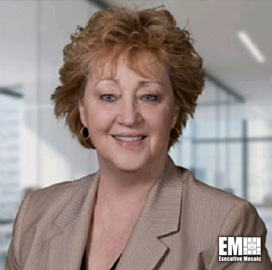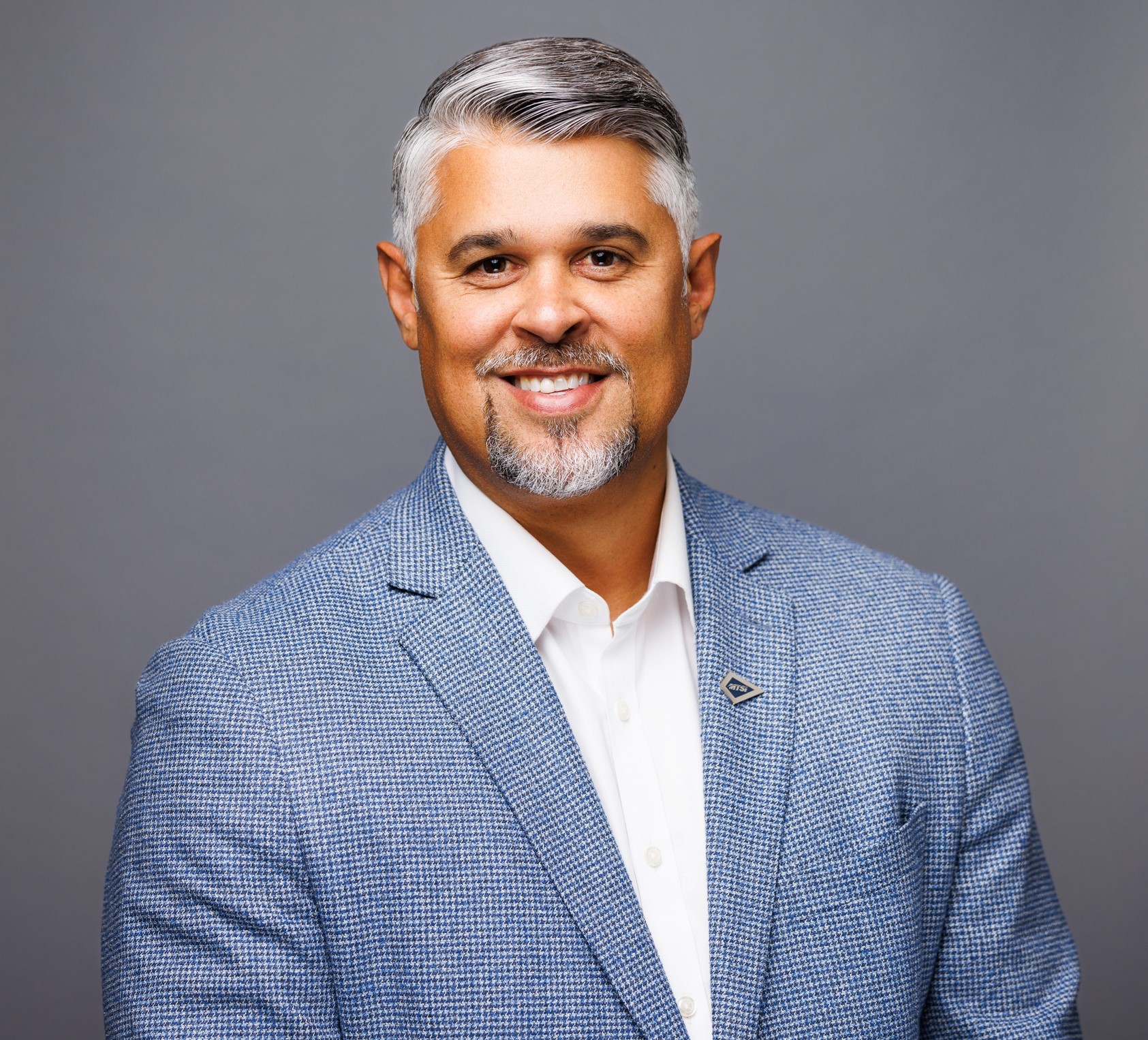
Ann Waynik,
Senior Director,
Day & Zimmermann
Executive Spotlight: Ann Waynik, Senior Director of BD, Capture for Day & Zimmermann
Ann Waynik, senior director of business development and capture at Day & Zimmermann and Potomac Officers Club member, recently spoke on her notable career milestones, growing her professional brand and optimizing solicitations across the federal landscape in an exclusive Executive Spotlight interview with the POC. Waynik, whose career includes time at PAE, Scitor and Engility (formerly TASC), also provided insightful advice for executives looking to build their presence and establish their voice in the government contracting sector.
What can you tell us about your background and how you’ve been able to adapt to the ever-changing challenges of the federal landscape over the course of your career?
“I got my start in the world of aerospace engineering at Martin Marietta. I grew up around the company, and my father (who worked there for over 25 years under dignities such as Peter Teets and Norman Augustine) was the person who first encouraged me to apply to an opening within the company. My father held an electrical engineering degree and worked as a contracts lead, so throughout his career, he taught me how the premise of the engineering lifecycle remains the same regardless of the government agencies you support or the roles you undertake.
From my father, I learned that one of the most valuable skills to possess is the ability to adapt to evolving technologies ahead of the customer. This advantage allows you to better lead and educate the customer on comprehending the relationship between technology and funding.
I was also taught to respect people regardless of their title. My father helped me learn to interface and create relationships with everyone, all in the interest of working towards a common goal. It’s like working on a jigsaw puzzle; we all have different pieces of the puzzle to share through our skills, networks and experiences. This habit has granted me the opportunity to meet and work with some incredible individuals across our Intelligence Community at all levels, positions and capacities. As a result, I’ve built a network of friends, customers, and business development partners who work together to adapt to emerging challenges. Whether we’re balancing the challenges of Agile or Waterfall schedule, transitioning software from unclassified to classified or adapting through COVID-19, the end goal remains the same: Work together for the common good of the customer with a mission-first approach.”
How would you advise someone entering our industry to build their resume and advance their careers to be in the best position in the years to come?
“My advice would be to step into every role you can and learn as much as possible. I started out as a project scheduler at Martin Marietta and then grew into a systems and test engineer at Ford Aerospace on the U-2 Ground Station (DCGS). I’ve supported Systems Engineering and Technical Assistance (SETA) contracts in directorates that included AS&T, COMM, SED, GED and satellite programs as a systems engineer across the IC. My line management included a contract of over 500 people. As I ventured into the roles of capture and business development, I learned more about the connections of those critical aspects in our business. Today, I understand the entire acquisition, program, engineering, and business development life cycles because of my drive to learn.
I also suggest volunteering across a wide variety of groups. This not only helps you learn more and get broader exposure, but most importantly, it expands your credibility and builds a powerful network. I have led monthly business development meetings and forums for the National Reconnaissance Office (NRO) and the National Geospatial-Intelligence Agency (NGA) for years. I am the co-lead of the United States Geospatial Intelligence Foundation (USGIF) NRO working group with Nick Buck, and I participate in the NGA working group. By immersing myself in these groups I have gained a better understanding of these agencies, their needs and their future strategies, while fostering connections with their executives.
I would also advise seeking out multiple sponsors in your career field. Try to build a sponsor base with diversity across titles, genders and backgrounds, as they will all have differing viewpoints, experiences and perspectives in life, and it will be helpful to hear a variety of thoughts. Finally, never stop reading or learning!”
If your career came to an end tomorrow, what would you say have been the most significant accomplishments of your career? Where do you feel you made the most impact?
“My most significant accomplishments have been sharing, teaching, and continually striving for more knowledge. My biggest impact has been making connections, whether it’s through people, ideas, networks or opportunities. In my business forums, I continually emphasize how government budgets are always changing and uncertain, as there are many external factors that influence budgets, both domestic and foreign. However, if we are willing to work together and connect new companies, skills and opportunities to one another, we will succeed threefold: stronger industry, stronger community, stronger for the customer.”
If you were given free rein to enact changes in the federal landscape, what are the first three changes you would implement and why?
“This is one of my favorite, yet most controversial questions. Right now, industry’s response to proposals is to ‘dive for the deck’, which results in the customer receiving Lowest Price Technically Acceptable (LPTA) proposals. Unfortunately, in some cases, Engineering Change Proposals (ECPs) are required soon after the award. To avoid such financial changes, in my personal opinion, the customer should adjust their solicitations in the following ways: First, by telling industry the total amount of ‘available funding’ being allocated over the entire Period of Performance (PoP) of the contract. Secondly, through the SOW/PWS, by continuing to provide the requirements and the type of innovative services, skills or deliverables required to satisfy the contract. Third, by identifying the milestone date or dates required for these services. Finally, by letting industry know the monetary incentive if the three previously outlined factors are met. This approach will incentivize industry to be more cost realistic and innovative with technologies, and it allows industry to be more flexible when they define the number of resources.
These suggestions, in my opinion, will eliminate both the industry concept of ‘win first, get healthy later,’ as well as the need for Most Probable Cost (MPC) adjustments. This could also lead to more clearly defined boundaries for competitors in addition to fostering more industry creativity as it pertains to skills, prototyping, pricing and research and development efforts. I am a firm believer that this approach will put better, more advanced technology into the hands of government customers.”

Category: Member News




